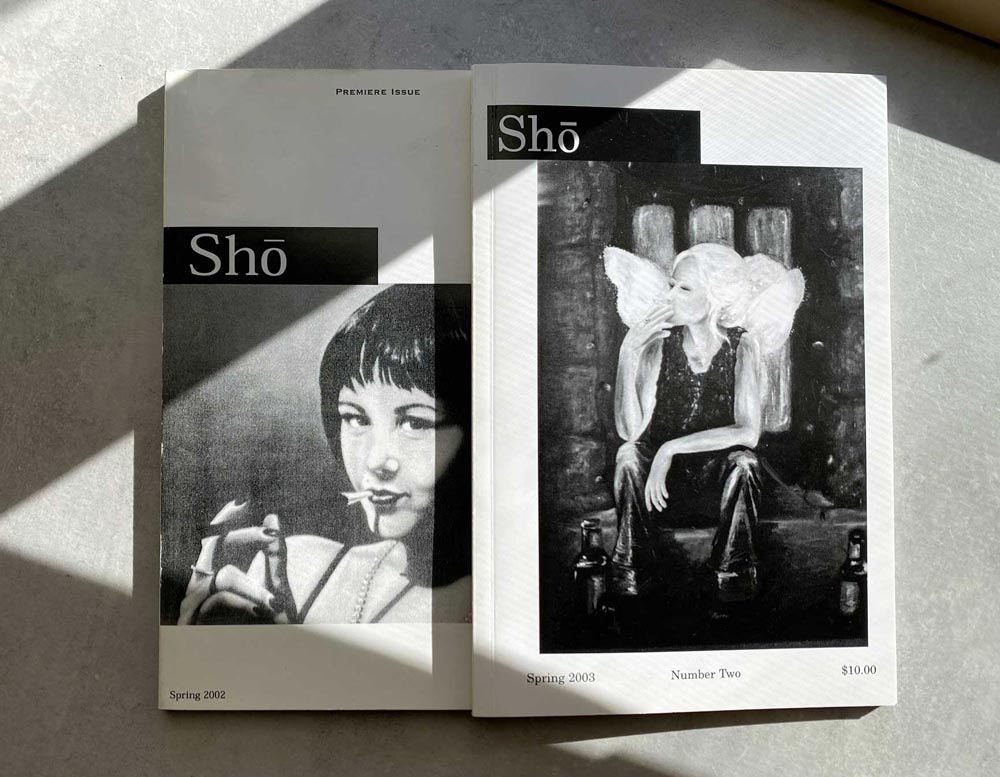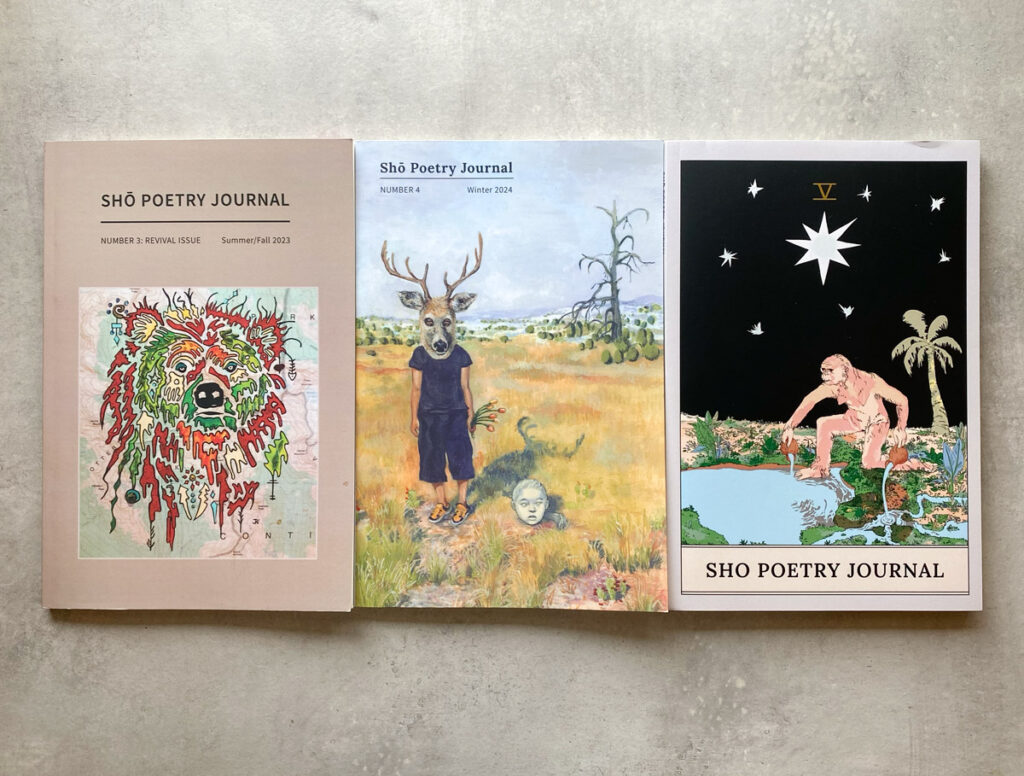

Our Story
Shō Poetry Journal was started in 2002 by Sita Martin when she was battling cancer. She wanted to create a platform to promote the work of poets she knew and admired. Sponsored by independent publisher Hohm Press, she solicited work from nine poets, collected a total of sixty-eight poems, and arranged them in her preferred order. She passed on from this world before going to press.
Johnny Cordova, one of the contributing poets, was asked to step in to oversee typesetting and cover design. After contributor copies of Shō’s premiere issue were mailed out, Johnny stayed on as managing editor and opened Shō to national submissions, soliciting work in the process from a handful of poets he’d been reading.
Shō No. 2 appeared in Spring 2003 and featured poetry by Lyn Lifshin, Amy Uyematsu, Jim Simmerman, Virgil Suárez, William Packard, Todd Moore, Gerald Locklin, Joan Jobe Smith, Fred Voss, Ann Menebroker, A.D. Winans, Robert L. Penick, and others.
The Resurrection
Shortly after publishing Shō No. 2, Johnny moved unexpectedly from Arizona to California, and Shō was discontinued.
In the summer of 2021, after ten years living in Southeast Asia, Johnny returned to Arizona and shortly thereafter received support to resurrect Shō in 2022. Shō No. 3: Revival issue was published in Summer 2023.
The present incarnation of Shō is edited by Johnny Cordova and Dominique Ahkong, a husband-and-wife team. In the summer of 2024, Claire Zhou joined the team as an intern and reader.
The Name
The name Shō was given to Sita Martin by her spiritual teacher, Lee Lozowick. He never told her what it meant.
From what we’ve gathered, it’s a Japanese prefix that takes on different meanings depending on the context. The meaning we’ve found most resonant is “to bridge” or “cross over.”
Given that it was Sita Martin’s swan song, we like thinking of the birth of Shō as a bridge that helped her cross over from this world to the next.
The Future
Since its beginnings in 2002 and its revival in 2022, Shō Poetry Journal has been published as an imprint of nonprofit publisher Hohm Press. We are proud to announce that as of late October 2024, Shō is now a publication of new 501(c)(3) literary nonprofit Beggar Poet Press, a publisher that aims to promote the art and practice of poetry. We appreciate donations of all sizes, which can be made here. We publish poetry in print twice a year. All of the work we publish is unsolicited. Read our Mission Statement here.
Read more
Sign up for our newsletter